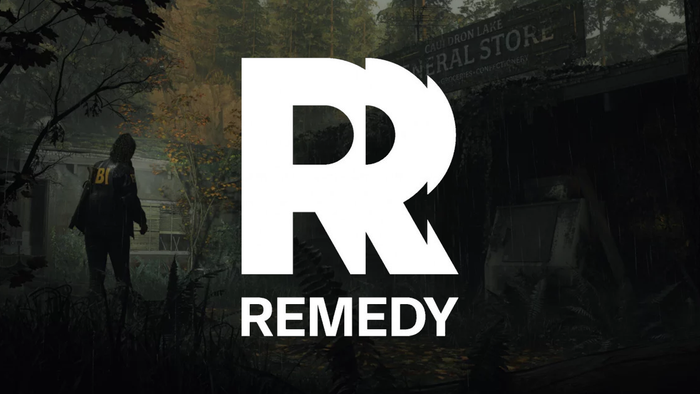Opinion: Video Game Planning - Stay Frosty
It's a fact of game development that something will go wrong, but panic's not an inevitability. Divide By Zero's James Portnow shares tips and tactics for keeping chill under pressure.

[It's a fact of game development that something will go wrong, but panic's not an inevitability. Divide By Zero's James Portnow shares tips and tactics for keeping chill under pressure.] We’re in the business of building video games. We haven’t gotten it down to a science yet. Be it anything from a minor bump in the road -- such as when one of the engineers creeps into your office with his head down and mumbles, "Remember that thing we thought the animation system did? Well, it doesn’t do that" -- to the more major hurdles, like the 9am call from Mr. _____’s administrative assistant to let you know that "Due to present financial realities, we have regrettably been forced to cut your funding," the unexpected will happen. The only question is: how will you deal with it? Panic! We’ve all heard the old platitude about "prepare for the unexpected." But you know what? Sometimes something will come up that you simply didn’t prepare for. When that happens, you have two options: Panic, or don't. Unfortunately, I’ve seen even industry veterans get blindsided and panic, and when that happens, all hell breaks loose. Panic is infectious and destroys morale, eating through teams and sapping the strength of studios. I won’t name any names here, but I’ve seen projects get delayed for years, studios fold, and 90-hour work week crunches all because someone panicked. In this article, I will try and lay out some basic tips and reminders that I use (and force on anyone who works with me who is in charge of other people) to stay frosty when the unexpected occurs. Don’t Respond Immediately There’s some primal tendency, especially among young males placed in leadership roles, never to admit weakness. When the unexpected occurs, this usually manifests itself by propelling those in question to leap into action, or snapping off an answer so as not to appear to others as unprepared. Or, there's the mistaken belief that any action is better than no action, and that the people below need firm and confident leadership, and that the only way to project this is through immediate decision-making. This is panic. If you feel like you have to answer off the cuff you will be always be wrong, because if you had the right answer it wouldn’t feel as though you were being hit with something you hadn’t prepared for. These spur-of-the-moment decisions are the decisions that I see most often reversed somewhere down the road, sowing confusion in the ranks, creating resentment or distrust of the leadership (because they’ve caused the trenches' troops to do wasted work -- and nothing stings like wasted work), and taking people away from tasks that could have been productive. This sort of machismo is hard to repress in the heat of the moment (I’ll admit to having to wrestle it down often myself), but it’s easy to deal with if you simply make a habit of taking a breath and making sure you’re offering a solution rather than reacting. If you are faced with a unexpected situation that to which you’re not sure how to respond, I’ve found the best course of action is to simply tell the messenger that you understand, and then ask them if there’s anything else they could be working on (almost always people know another productive task they could do). Let the team work on something else while you take the time to get the facts and deliberate. At the end, you’ll probably be stuck making your best guess, but it’s going to be a heck of a lot better than the one you would have made otherwise. This sort of quiet deliberation will earn you the trust of your team ten times faster than decisive action. We’re not fighting a war; no one is going to die if you take your time to think before acting. Note that at the beginning of this section I upbraided young men, because I’ve found this problem to be common among young male producers who are just getting their sea legs and really aren’t sure of themselves. But really, this is an endemic problem. I’ve seen managers of both genders who have a reputation for being "large and in charge" feel compelled always to have a firm answer because "that’s who they are," and let me tell you, while reactionary decisions are bad when they come from an AP, they’re a hell of a lot worse when they come from the CEO. What Would You Do? Many disasters can be avoided simply by asking the question, "What would you do?" Often, when someone comes to you with a problem, it’s something they’ve been thinking about for quite some time and, unless it’s an interpersonal problem, it’s usually within their area of expertise.This almost guarantees their input will be valuable to your decision making process -- but because they’ve rocked the boat in the first place (or because of the way the company hierarchy works), it’s common for people to feel uncomfortable offering their input until prompted. Don’t let a curveball throw you so much that you forget the value of the person pitching it to you. A Magic Bullet or a Bee in Your Bonnet? One of the classic signs of panic is grasping at straws or looking for miracles. One of the assured signs of panic is looking for different miracles every week. I once knew a man on an ill-fated MMO project who described the work environment as a "rubber ball in zero G". Each week, the team was reassigned to focus on a new task which had become top priority because each week, the word came down that "our problem is X, and if we just fix that, we’ll all be okay." Somewhere up the chain, someone was panicking. If you ever believe that a game hinges on one thing, take a step back carefully examine why you think so. If you ever believe that a game hinges on one thing, and that one thing is different than the "one thing" the game hinged on a few weeks ago, take a couple of days off -- your team will thank you. Freezing Up and Defeat One of the clearest manifestations of panic is freezing up or giving up. When this happens --and it happens to the best of us at times -- break down your tasks into the smallest chunks you possibly can. This will reduce what’s facing you to large number of accomplishable task, rather than a daunting monolith of unfinished work. One word of warning, though: if you’re in this stage of panic, you’ll feel as though you don’t have time to go and break down your work. If you ever feel that pressure just take a step back and realize that that’s an indicator of panic. You’re always going to be better off taking the time to split your work into tasks that you can manage than to continue butting your head against a wall of undirected labor. If you do this and still feel overwhelmed or powerless, talk to the next guy up the chain -- perhaps they can give you what you need to do your job (and now you’ll have a much better idea of exactly what that is). There’s Always an Answer Lastly, one of the best ways to stay cool when sidelined by something completely unexpected is to remember that there’s always an answer to any problem you face in this field, the only question is whether you find it in time. When things break down, just bring yourself back to reason behind why you needed whatever went wrong to go right in the first place and look for other solutions from that perspective rather than try and solve the specific problem that confronts you. For example, let’s return to our busted animation system that we talked about in the opening paragraph: just ask yourself, "Why did you need your animation system to do whatever it is that it you now know it doesn’t do? Is fixing the system you currently have the best solution, or could you get the effect you’re looking for some other way?" Once you start examining things from this perspective they become much more manageable - you’re looking for solutions and making cost-benefit analyses rather than facing a problem. This pulls you away from panic, and pushes you towards a calm approach that will infect your team. Conclusion Avoiding panic really boils down to three simple things: 1. Take your time 2. Trust your team 3. Trust yourself If you can do that and keep in mind that everything has a solution and nobody dies if you fail, you should be able to keep your cool in the worst circumstances. So good luck with your projects and, for yourself and for your team, stay frosty. [Questions? Advice? Flames? Comment here, ping me at [email protected],or hit me up on Twitter @jamesportnow.]
About the Author(s)
You May Also Like













